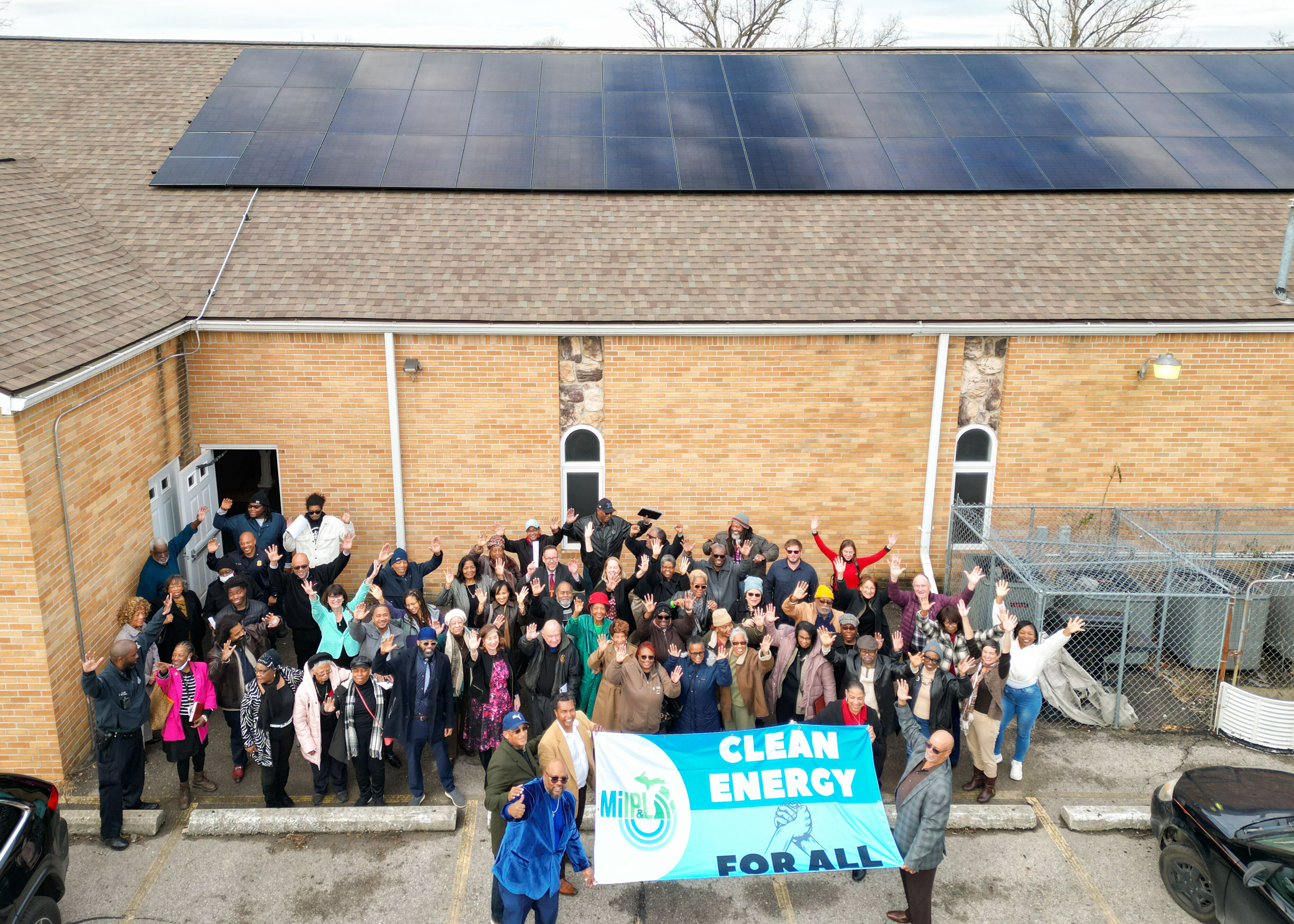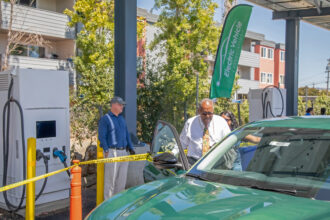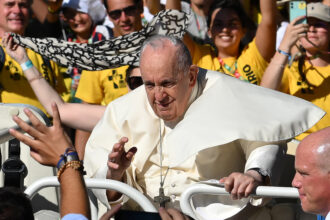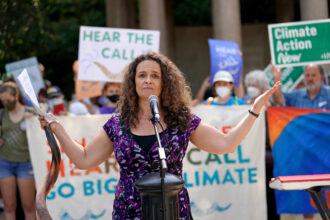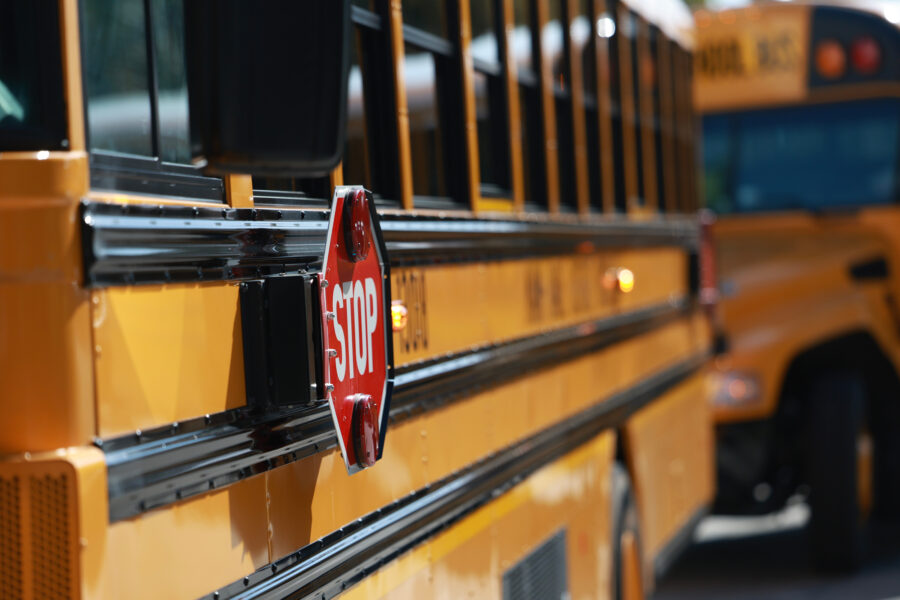The connection between solar panels and his church mission wasn’t immediately obvious to Wilson Moore, deacon of New Mount Hermon Missionary Baptist Church in Detroit. But when he was tasked to install energy-efficient renovations to the church building, Moore began to see the possibilities.
As Moore met with businesses and utilities, it became clear that installing solar would allow the church to do more of what it has always wanted to do—provide aid to its community in times of need.
The southwest neighborhood copes with nearly two dozen nearby polluting industries, including a petroleum refinery and wastewater treatment plant, and congregants experience frequent home power outages, he said.
“If you have a breathing machine, you need electricity to keep going. If you have a mobilizing chair, you need electricity to charge up. Families need a place to get cool, sit down, have a meal, and be at peace while they wait for the power to come back on,” Moore said. “It dawned on me—that’s our church.”
These services could be offered, he realized, with more reliable and economical energy within the church itself, and he began working with Michigan Interfaith Power & Light and Solar Faithful, two Michigan-based nonprofits that help houses of worship adapt to climate change.
When Solar Faithful launched projects in early 2023, its leaders estimated that around 30 of the nearly 10,000 houses of worship in Michigan used solar panels. Board member Steve Mulder said the nonprofit aims to increase that to about 350, a 3.5 percent rate on par with commercial and industrial use of solar panels. After nearly three years of work, the nonprofit estimates about 70 of the state’s religious buildings have solar panels.
Such work is getting harder as federal incentives supporting clean energy diminish under the Trump administration. But advocates are pushing to keep making inroads. This Sunday, faith groups like Solar Faithful are promoting solar energy through a nationwide event called Sun Day.
Organizers have modeled Sun Day after Earth Day, which started in 1970 and quickly became an annual staple for the environmental movement. Hundreds of events will take place around the country Sept. 21, many of them led by communities of faith. Mulder’s Solar Faithful will collaborate with other nonprofits to reference the New Mount Hermon story and hear from others at an event in Kent County in western Michigan.
Actress Antonique Smith is a Sun Day spokesperson and co-founder of Climate Revival, a nonprofit that aims to mobilize communities of faith and people of color to combat climate change. Smith sees parallels in this moment and the Civil Rights Movement, which was rooted in Black churches.
“This is such a crazy time when we’re dealing with these forces and this administration that seem insurmountable,” Smith said. “We need a higher power. We need people to have faith and hope that we can win so that they would be willing to get out there and really fight.”
For Smith, pushing for solar is the same as pushing for environmental justice. “That same pollution that is causing climate change is what’s making us sick in our neighborhoods,” said Smith, who grew up in East Orange, New Jersey, near a power plant.
She said the fumes were constant and Smith believes they harmed family members, including a sister who suffers from interstitial lung disease. “Because Black and brown communities are the ones being oppressed by the pollution—they are the sacrifice zones—they should be leading the climate movement,” Smith said. “The same way Martin Luther King and those congregations led.”
Bill McKibben, the author and environmentalist, helped launch Sun Day. During a webinar this summer, he described solar energy as an accessible and affordable source.
“Solar is no longer alternative energy,” McKibben said. “It’s one of the most obvious, straightforward and commonsense sources. It’s not the Whole Foods but the Costco of energy.”
Clear Savings
The New Mount Hermon church embarked on multiple improvements, funded through federal and state grants that Michigan Interfaith Power & Light advisors helped to navigate. In February, it installed 60 solar panels at the cost of $75,000. It has also installed three furnaces for $25,000; water heaters, $21,000; LED lighting, $28,000; energy-efficient front doors, $22,000; and new freezers, $3,500.
The church’s modest one-story brick building is now saving 30 percent in monthly energy bills and training congregants to run the church as a resilience hub to help community members during power outages and extreme weather events, Moore said. Recently, seventh-grade science classes from a nearby school visited the church to hear two young women engineers explain how the panels work and share career opportunities in the solar industry.
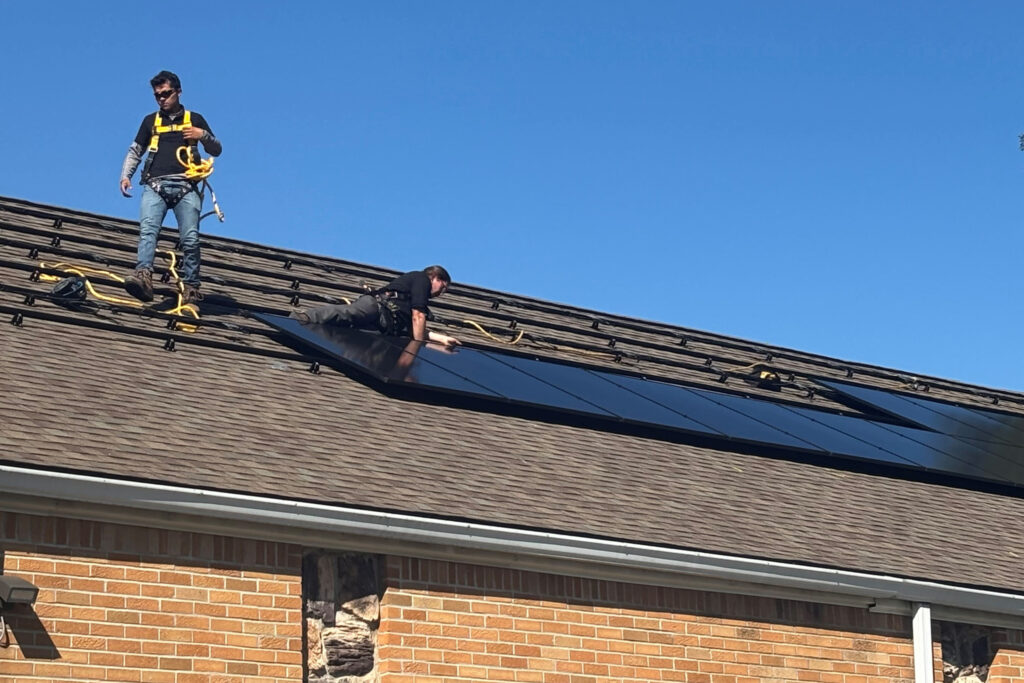
The school visit wasn’t anything the church planned when it first considered solar, but “it turned out to be one of the best things,” Moore said.
“It was an opportunity to show kids in the inner city that there are some things you can do that don’t require you to bounce or run a ball. The skilled trades are such a viable opportunity. You always have work, and that’s something nobody can take from you.”
Faith and Climate
Nearly 90 percent of Christian leaders believe in human-caused climate change, although religious leaders “who shape the attitudes and beliefs of their congregations” rarely discuss the issue, according to a study in PNAS, a peer-reviewed journal of the National Academy of Sciences, published this March. About half have never discussed it with their congregations, and only a quarter have “mentioned it more than once or twice,” the study found.
Sun Day could be a way to change that, according to its organizers. “Sun Day represents an opportunity for faith communities to stand up and make it clear that people are concerned,” said the Rev. Fletcher Harper, founder of the international nonprofit GreenFaith, a lead partner for Sun Day.
This story is funded by readers like you.
Our nonprofit newsroom provides award-winning climate coverage free of charge and advertising. We rely on donations from readers like you to keep going. Please donate now to support our work.
Donate NowSupport for solar and wind has declined since 2020 and the drop is largely driven by partisan politics, according to ongoing Pew Research Center studies. A Pew study from 2022 found “highly religious Americans are more inclined than others to identify with or lean toward the Republican Party, and Republicans tend to be much less likely than Democrats to believe that human activity (such as burning fossil fuels) is warming the Earth or to consider climate change a serious problem.”
The study found that evangelical Christians show the least concern (34 percent) for climate change while non-Christian people of faith and Black Protestants show the most concern (72 percent and 68 percent).
But even in places like the Bible Belt, congregational interest in solar panels rises when financial incentives are offered, one nonprofit has found.
The environmental nonprofit Georgia Interfaith Power & Light (GIPL) tracked a 50 percent increase in solar installations in the state from 2023 to 2025, all related to Inflation Reduction Act incentives from the Biden administration.
The Trump administration’s withdrawal of support for clean energy is “disheartening,” said the Rev. Jay Horton, GIPL’s communications manager. Georgia residents have experienced six electricity bill hikes since 2023 with an average $43 total increase on monthly bills, and installing solar is a way to cut costs and build resilience, Horton said.
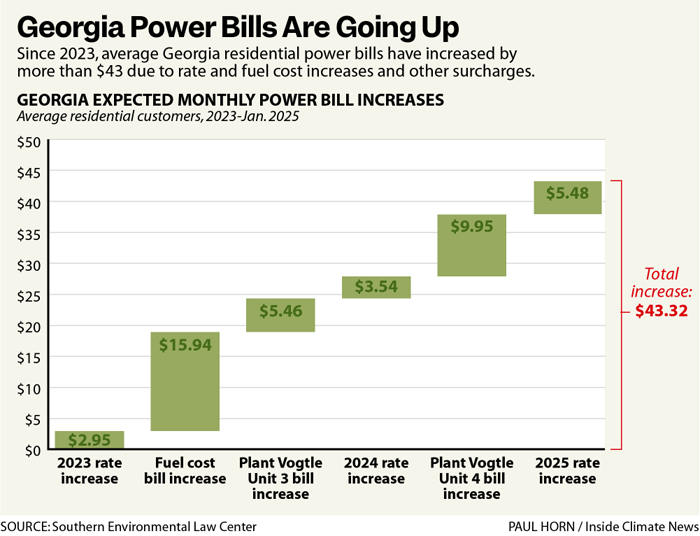
GIPL has tracked 33 completed solar installations on houses of worship in the last decade, with another seven on track to finish by the year’s end. With roughly 15,000 houses of worship in the state, the solar adoption rate is infinitesimal: 0.003 percent. Horton sees the huge gap as an opportunity.
“If faith communities came together,” he said, “we could really see impacts in our world.”
Solar Faithful’s Mulder considers faith communities a “sleeping giant” in the clean energy transition. While the Biden-era IRA was a “huge shot in the arm” for the transition, Mulder thinks it also caused people to rely on the government.
Now, he said, people are realizing, “if we want to change this, we’ve got to do it ourselves.”
Sunny Celebrations
Events celebrating solar energy on Sept. 21 will reflect faith communities’ interests and culture.
In Chicago, members of houses of worship including the Unitarian Church of Evanston and the Jewish Reconstructionist Congregation will join nonprofits, universities, justice organizations and solar installers for a Solar Fest at Montrose Beach. In Secaucus, New Jersey, members of Episcopal Church of Our Saviour will don snorkel masks, flippers and floaties to show what would happen if climate-driven sea-level rise submerged their town.
Niles Discovery Church, in the United Church of Christ denomination, in Fremont, California, will sponsor an EV car show.
Rabbi Nina Beth Cardin in Baltimore is encouraging Jewish communities to celebrate Sun Day in tandem with Rosh Hashanah, the Jewish New Year, on Sept. 22, by assembling a special seder plate of symbolic foods celebrating hope, renewal and the light of the sun.
Climate Revival’s Smith will sing in a Sun Day Festival in New York City, featuring McKibben, journalist Kai Wright and others.
“Climate has seemed a lot like a rich white people thing,” Smith said, noting that there was a time when solar panels were out of reach for most Black communities.
“Over time what I have seen is that our communities have not been approached enough to understand their part,” Smith added. “At this point, what’s so beautiful is that because of time and technology, the prices are much lower and solar is attainable for more people. It’s for everybody.”
About This Story
Perhaps you noticed: This story, like all the news we publish, is free to read. That’s because Inside Climate News is a 501c3 nonprofit organization. We do not charge a subscription fee, lock our news behind a paywall, or clutter our website with ads. We make our news on climate and the environment freely available to you and anyone who wants it.
That’s not all. We also share our news for free with scores of other media organizations around the country. Many of them can’t afford to do environmental journalism of their own. We’ve built bureaus from coast to coast to report local stories, collaborate with local newsrooms and co-publish articles so that this vital work is shared as widely as possible.
Two of us launched ICN in 2007. Six years later we earned a Pulitzer Prize for National Reporting, and now we run the oldest and largest dedicated climate newsroom in the nation. We tell the story in all its complexity. We hold polluters accountable. We expose environmental injustice. We debunk misinformation. We scrutinize solutions and inspire action.
Donations from readers like you fund every aspect of what we do. If you don’t already, will you support our ongoing work, our reporting on the biggest crisis facing our planet, and help us reach even more readers in more places?
Please take a moment to make a tax-deductible donation. Every one of them makes a difference.
Thank you,

